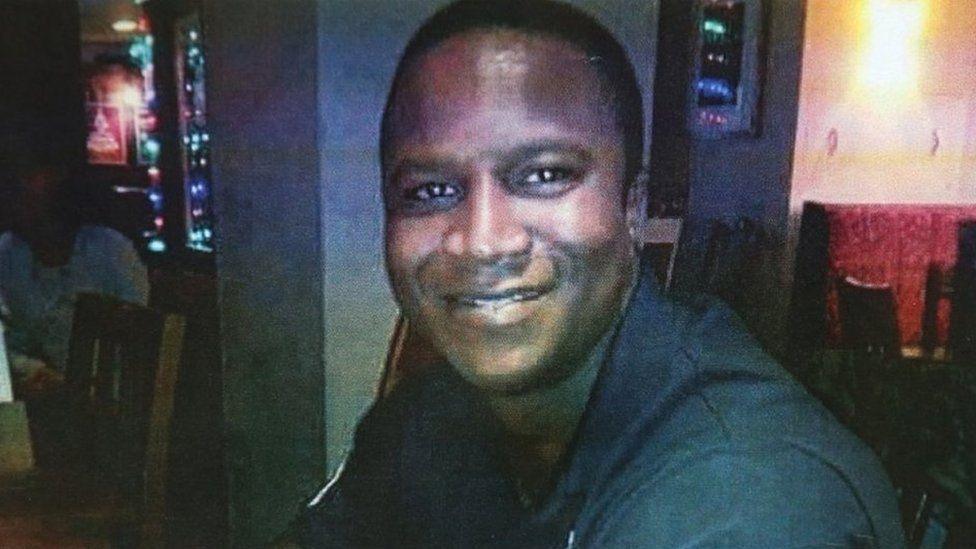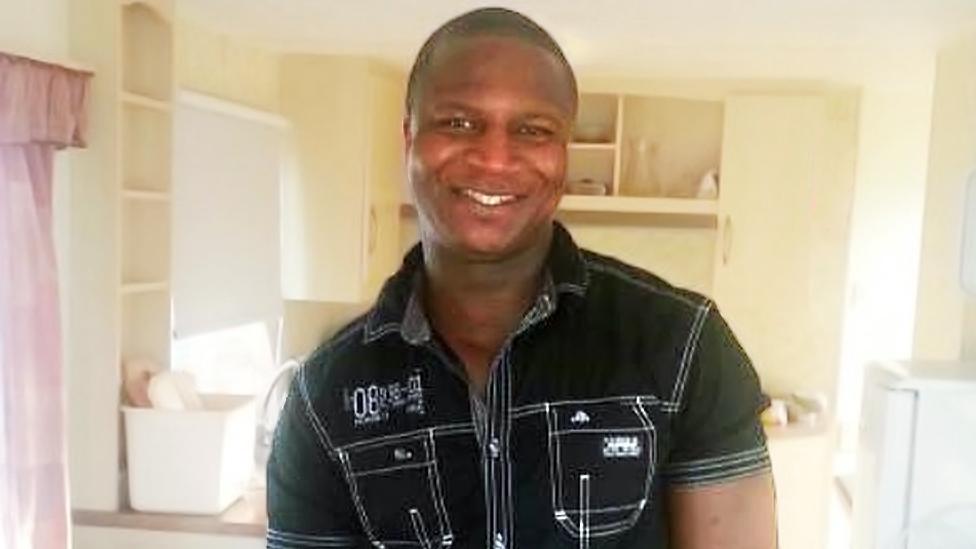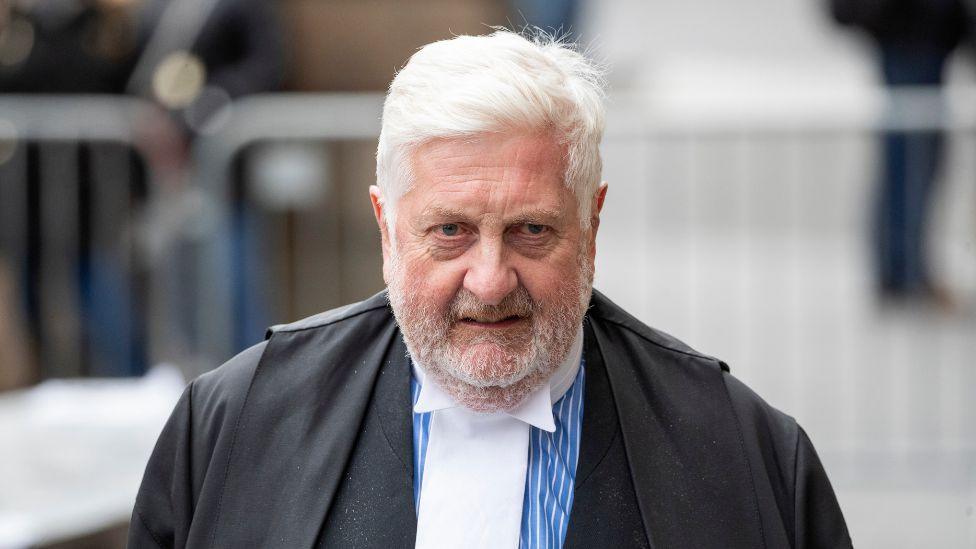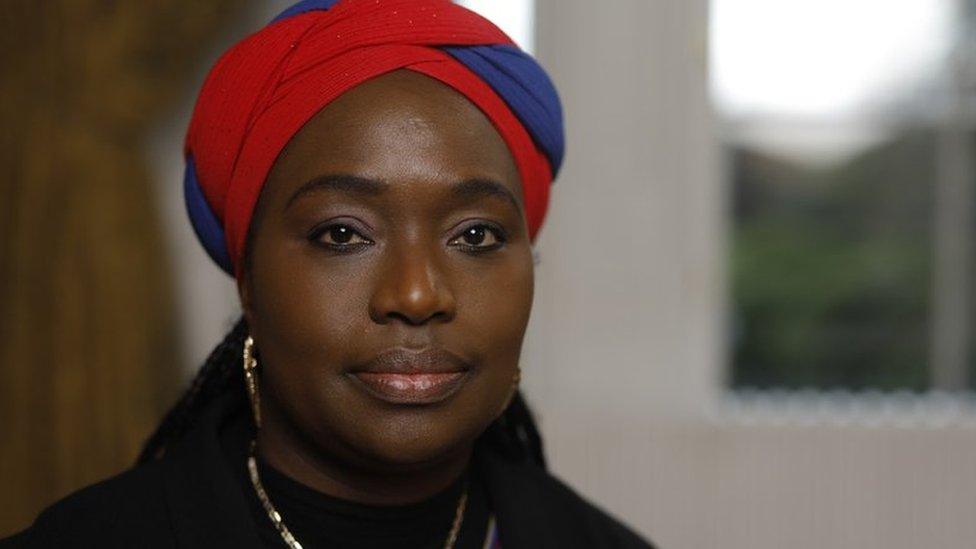Sheku Bayoh inquiry told of 'traumatic' house search by police
- Published

Sheku Bayoh died in police custody in 2015
A woman has told of her "traumatic nightmare" when police searched her family's home in the aftermath of Sheku Bayoh's death.
Mr Bayoh died after being restrained by police in Kirkcaldy, Fife, in May 2015.
Saadia Rashid's brother Zahid Saeed had been with him earlier that morning. She told an inquiry that her family's house was searched without a warrant.
Mrs Rashid also said they were discriminated against because they are Muslim and Pakistani.
The inquiry is looking into the circumstances of Mr Bayoh's death, and whether race was a factor.
Mrs Rashid told a hearing in Edinburgh that two officers initially arrived at her mother's house, where she was staying, at about 08:00 on Sunday May 3.
She said they told her they were looking for her brother, and they left when she said he was not there.
About an hour later, she said a number of uniformed officers came to the house along with one in a suit who told her the family needed to leave as officers were looking for evidence and had to search the house.
Mrs Rashid told the inquiry: "I asked for a warrant. He didn't have one."
In written evidence, the witness said: "They said they didn't need a warrant, that we had to vacate now, they said we didn't have a choice and we had to let them in because this was a crime scene and they had to seal... and search the house".
Mrs Rashid said no explanation was given as to why officers needed to search the property, or why it was considered a crime scene.
'Nightmare experience'
The witness said she had come to her mother's house for rest after an emergency C-section when her baby was born and instead that day endured a "traumatic, nightmare experience that was uncalled for".
In her inquiry statement she also said the family "felt almost like we were being treated differently because we were Pakistani and Muslims".
Asked what it was about the officers' behaviour that made her feel this way, Mrs Rashid said: "The fact that we were Muslims and wearing hijab, we were quite vulnerable at the time, had that been anyone else they would have been treated differently."

An inquiry into Sheku Bayoh's death is examining whether race was a factor
The witness said she explained to officers that she could not leave as another of her brothers, a paralysed war veteran, was in a wheelchair and she and her elderly mother could not move him on their own.
She told officers she also had two young children, aged two months and one-and-a-half.
However she said they did not offer any assistance and did nothing to help.
She told the inquiry that she then packed "in panic mode", feeling rushed, and later discovered she had left things behind including breast pumps, expressed milk and medication.
Mrs Rashid said officers told her she could not go back into the house to collect them.
She said the family were treated with no compassion and the experience left them feeling like "second-class citizens".
Later, she told the Edinburgh hearing she was also not aware of anything that would connect Mr Bayoh to the house.
The inquiry also heard from Mrs Rashid's father Saeed Ahmed, who came to the house to help after his daughter rang to tell him what was happening.
He said police initially would not let him into the house even though he told them he was a carer for his son.
Police ultimately let him in after some discussion amongst officers.
The inquiry, before Lord Bracadale, continues.
- Published1 December 2022

- Published21 November 2022
